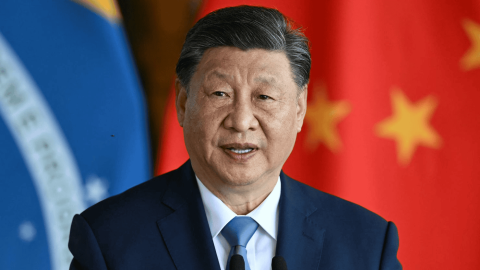China Announces 34% Tariff on all U.S. Imports in Response to Trump's Tariffs
In a dramatic escalation of global trade tensions, China has announced a 34% tariff on all U.S. imports, effective April 10, in direct response to President Donald Trump's recent imposition of a 54% tariff on Chinese goods. This move marks a significant intensification of the ongoing trade conflict between the world's two largest economies. The tariffs are expected to have far-reaching implications for global trade stability, economic growth, and diplomatic relations. As tensions rise, concerns about a potential global recession are growing, with analysts warning of heightened uncertainty and reduced consumer demand.
Background of the Trade Conflict
The current trade dispute between the U.S. and China has its roots in long-standing issues of trade imbalance and intellectual property rights. President Trump's administration has been vocal about addressing these concerns, often through the imposition of tariffs. In recent weeks, Trump announced a universal 10% tariff on all imported goods, alongside a 34% additional tariff specifically targeting China, bringing the total tariff rate on Chinese imports to 54%. This decision was framed as a response to perceived unfair trade practices by China, which the U.S. claims have resulted in significant economic losses.
China's Retaliatory Measures
China's decision to impose a 34% tariff on U.S. goods is a direct response to the U.S. actions. This move is not only a financial retaliation but also a political statement, as China seeks to assert its position in the global trade arena. Beyond tariffs, China has also expanded its "unreliable entity" list, adding several U.S. companies, and has tightened export controls on rare earth minerals, crucial components in high-tech manufacturing. These measures underscore China's willingness to engage in a prolonged trade standoff, potentially reshaping global supply chains and trade dynamics.
Impact on Global Trade
The escalating trade tensions between the U.S. and China have significant implications for global trade. The tariffs imposed by both nations are expected to increase prices for consumers, potentially leading to reduced demand and slowed economic growth. This scenario could trigger a global recession, as warned by financial analysts, including JPMorgan, which now estimates a 60% likelihood of such an event by the end of the year. Furthermore, these tariffs threaten the stability of the international free trade system, which has been a cornerstone of global economic prosperity since World War II.
Global Economic Implications
The economic implications of these tariffs extend beyond the U.S. and China. Other countries, particularly those in Asia and Europe, are likely to feel the effects as well. For instance, Asian economies are heavily reliant on U.S. demand for their goods, making them vulnerable to the trade disruptions. Similarly, European nations face tariffs of up to 20% on certain imports, which could strain their economic recovery. The global economy, still recovering from post-pandemic inflationary pressures and unprecedented debt levels, is now facing additional stress from these trade tensions.
Future Prospects and Potential Resolutions
As the trade conflict deepens, there is a growing need for diplomatic efforts to resolve these issues. Both the U.S. and China have expressed interest in negotiations, but tangible progress remains elusive. The imposition of tariffs has created a complex web of economic and political challenges that will require careful maneuvering to untangle. In the meantime, countries are exploring alternative trade partnerships and diversifying their export markets to mitigate the effects of the tariffs. This shift could lead to a broader restructuring of global trade relationships, potentially altering the economic landscape for years to come.
In conclusion, the ongoing trade conflict between the U.S. and China represents a pivotal moment in global economic history. The tariffs imposed by both nations have set off a chain reaction of economic and political consequences that will be felt worldwide. As the situation continues to unfold, it remains to be seen whether diplomatic efforts can successfully navigate these challenges and restore stability to the global trade system.
